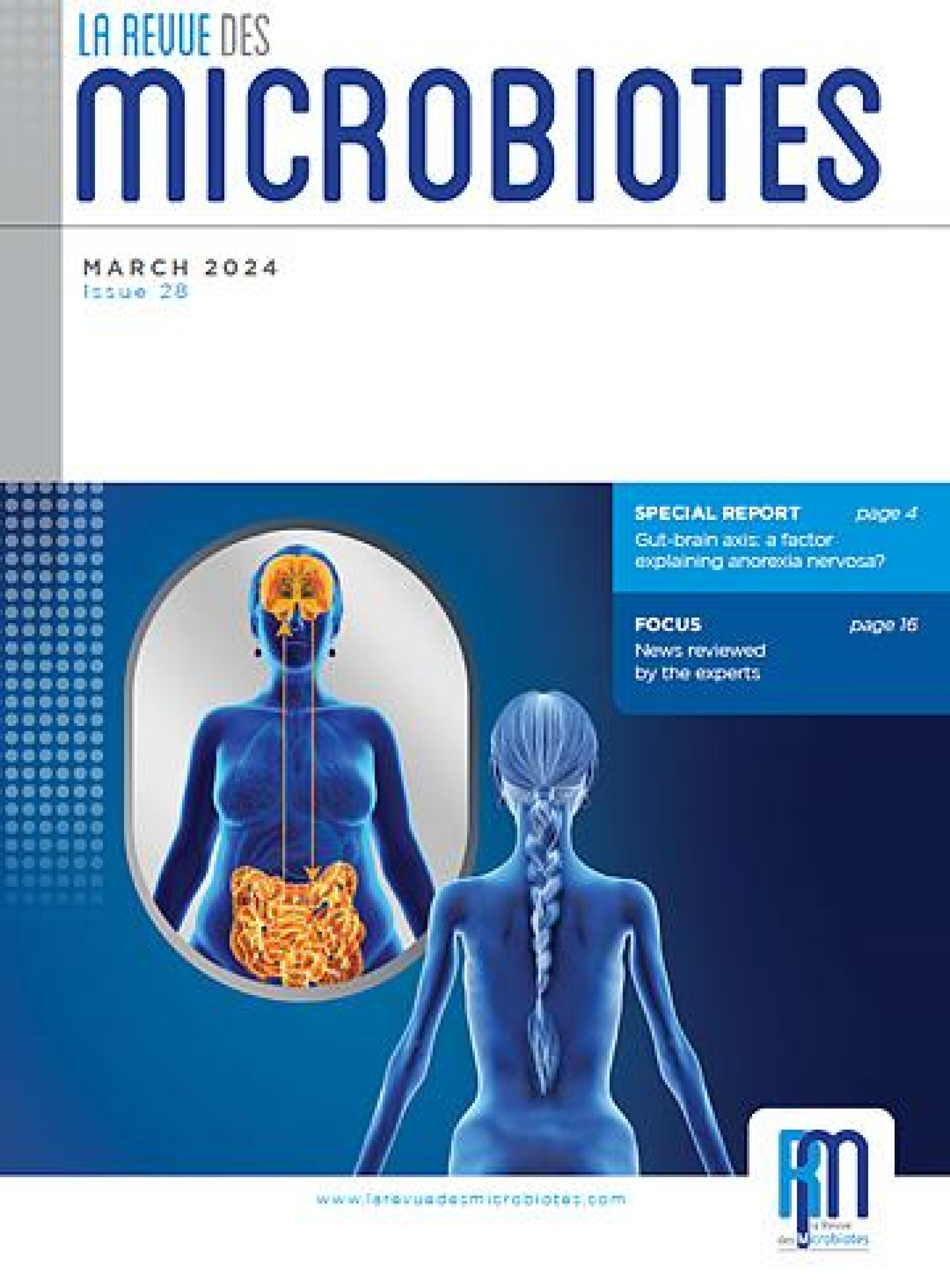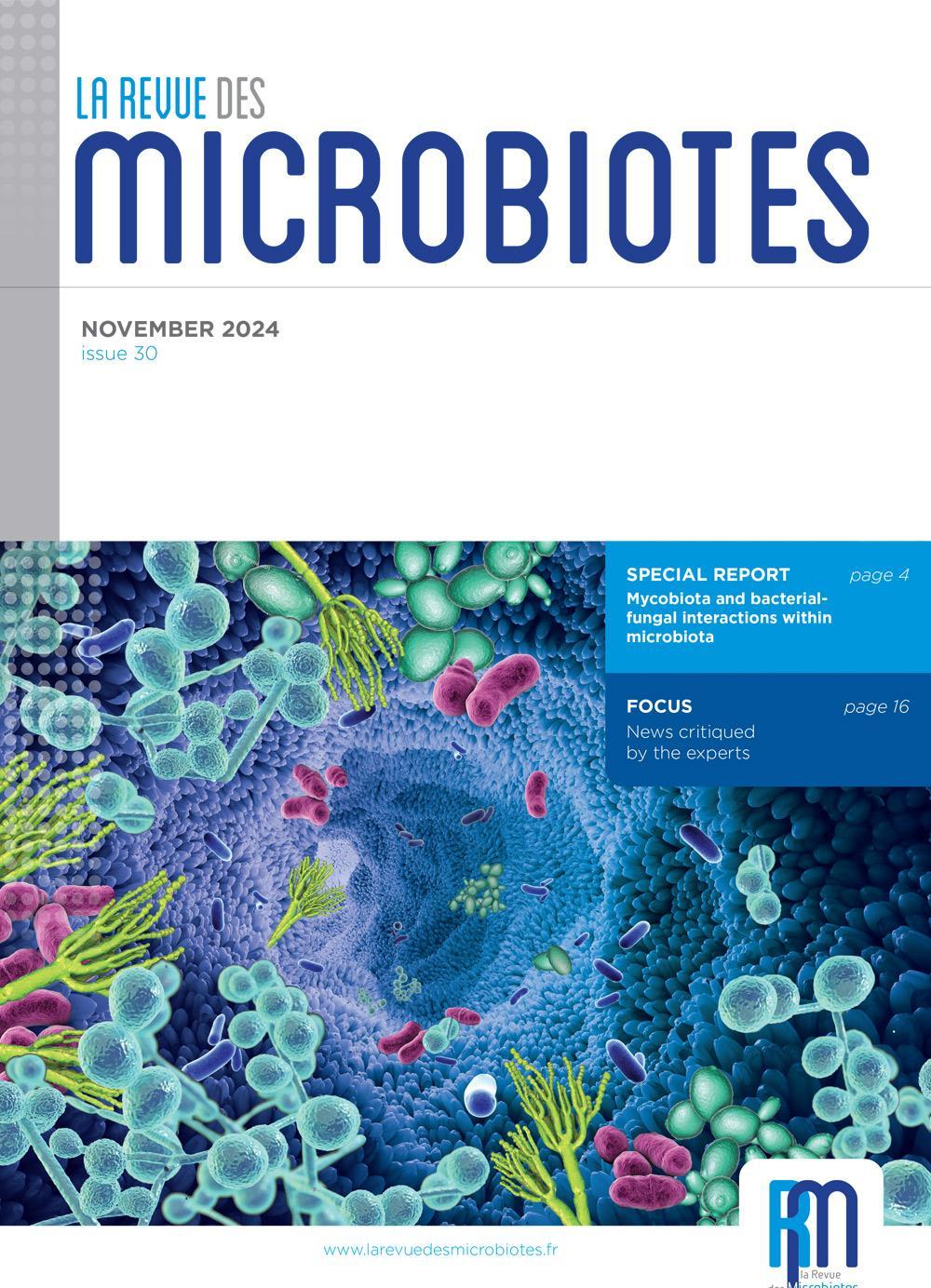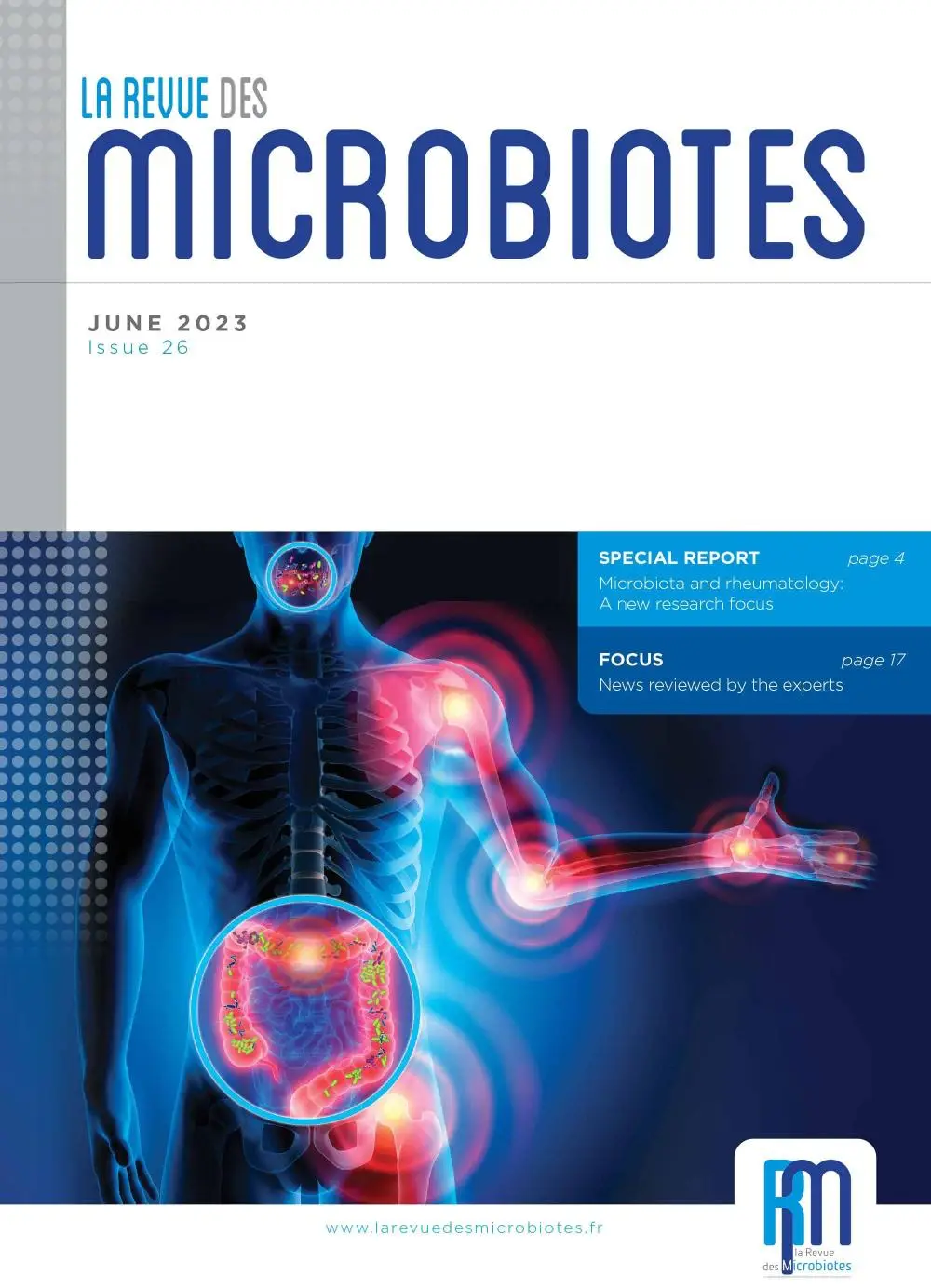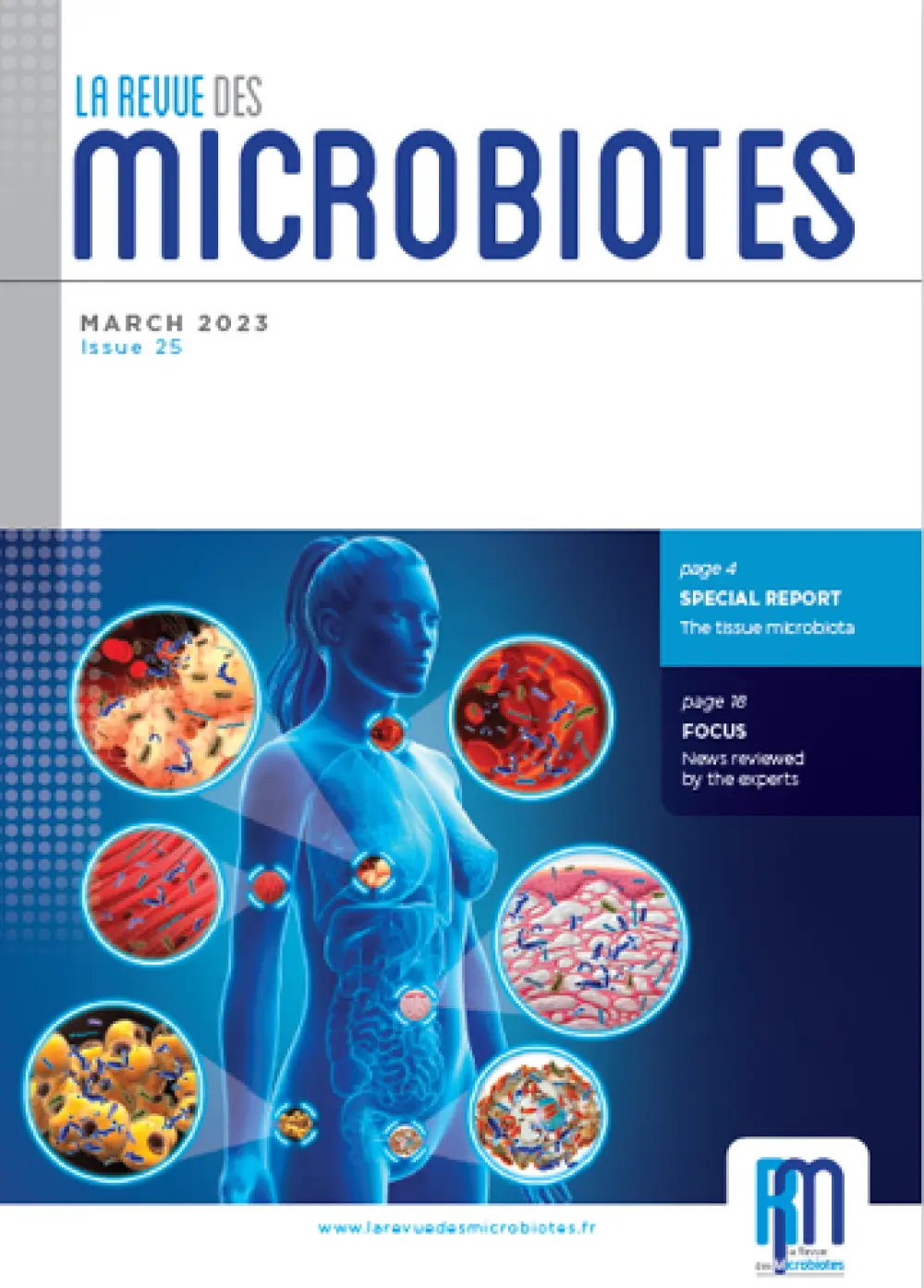The involvement of the gut microbiota and the gut-brain axis in many psychiatric and neurodegenerative diseases has been suggested in recent years. But it is perhaps when we look at eating disorders (EDs) that this gutbrain axis takes on its full significance. One of the functions of the intestine is to detect the amount of nutrients ingested and send signals to the brain, in particular via the vagus nerve but also through the production of hormones, in order to regulate appetite and satiety. Numerous studies have shown that the microbiota modulates these signals sent by the intestine to the brain.
It's only a short step from there to thinking that our appetite is under the control of our microbiota, and that an imbalance in the microbiota could contribute to the appearance of EDs, which the report in this issue could help us to understand. This report, which focuses on anorexia nervosa and is written by two clinicians specialising in the field, suggests an aetiological role of the microbiota in this disease, opening up diagnostic and therapeutic perspectives focused on intestinal bacteria. This would undoubtedly represent a significant step forward in the management of this disease, for which no specific treatment currently exists.
I hope you enjoy reading this issue.
Philippe Gérard
Editor in Chief for this issue














